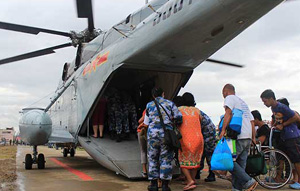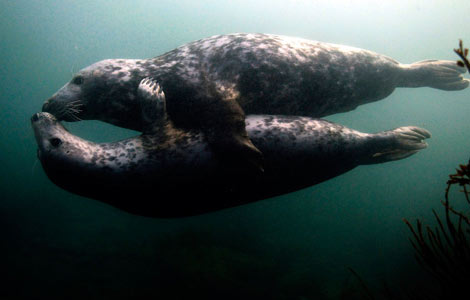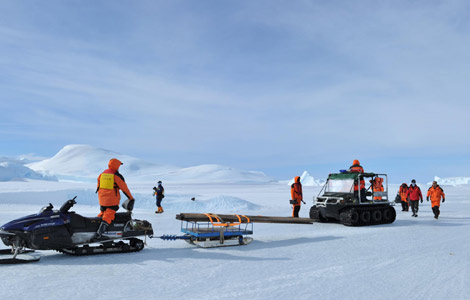'Can we survive after surviving?'
Updated: 2013-12-10 08:00
By Peng Yining (China Daily)
|
||||||||
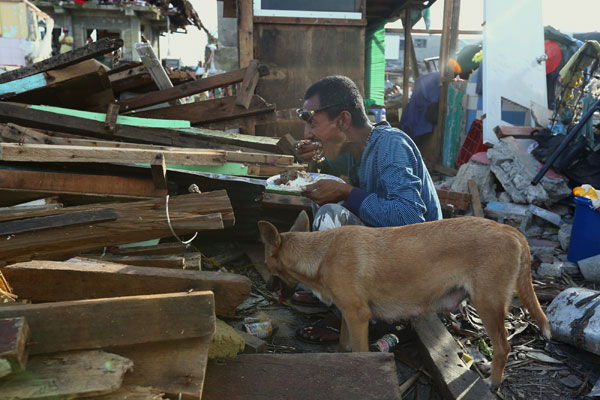 |
|
A resident eats amid the debris in Palo. The biggest problems facing survivors of Typhoon Haiyan are disease and a lack of clean drinking water. Ju Zhenhua / for China Daily |
Low health awareness
Low public health awareness might help the spread of disease, according to Alphen, who said the locals are unable to reheat leftover food or boil their drinking water.
Rufo Rosalcs, a 66-year-old Tacloban resident at the evacuation center, said he and the five members of his family had been drinking water straight from the faucet. "The weather is so hot and we don't have enough wood to boil the water," he said. "Besides, nobody told us the water could be unsafe."
Contaminated drinking water is always the biggest health risk in disaster areas, according to Song Hongbin, an expert in infectious diseases.
He said the water sources could have been contaminated by the floods, dead bodies or leaking raw materials from damaged chemical factories.
"Monitoring water quality is one of our main tasks here," said Song. "We have been reporting the results to the WHO and the local health department at their weekly meetings."
During the stay in Tacloban and Palo, the disease-prevention squad collected 27 water samples from wells, faucets and barrels at a variety of locations, including schools, hospitals and evacuation centers.
The result showed that the levels of lead in 19 tap water samples were between 0.01 milligrams per liter to 1.8 mg/L, which exceeded the WHO's standard of 0.01 mg/L. The bacteriological index of one sample of well water was positive.
Jose R. Llacuna Jr., regional director of the Philippines health department, published the report at a weekly meeting on disaster relief. He said ensuring water quality and controlling disease is currently the most important work.
"I am afraid the high level of lead in our drinking water is a problem we need to solve, but I am pleased that only one water sample was positive on the bacteriological index," he said. "I really appreciate the work done by the hospital ship, especially in the field of epidemic prevention."
A message of thanks
The 2,500 residents of Barangoy Cavite West village, had painted a message of thanks to the Peace Ark crew on a wooden board. It read: "Thank you very much for your kind-hearted support for us, the Filipino people."
Tots Portula, a village representative, presented the message, which was displayed on the street, to Cong when his team returned to the village to conduct further pest control exercises.
"They visited every family in our community door by door, and went into every house to spray pesticide," said Portula. "It's impossible for us to do the work, because we haven't even got the electricity back yet. Pest control really works. The people in our community are very grateful."
Cong said he was touched by the friendly local people, and said his work could never be accomplished properly without the cooperation of the locals. The team delivered lectures on public health and disease protection in every area it visited, so the locals will be able to look after themselves when the Chinese medics leave the area.
Many problems still exist, though, according to Cong. It's one thing for the medics to test the water and make a report, but the team has limited ability to improve water quality fundamentally.
The hot, humid weather coupled with the extensive flooding means pest control also has a limited effect, he said.
"There is still a lot of garbage in the city, and the 13 of us can't cover the entire disaster area," said Cong. "But we have tried our best and done as much as we possibly could."
Ju Zhenhua contributed to this story.
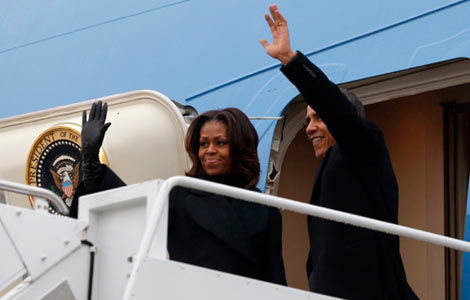
 World's top leaders pay tribute to Mandela
World's top leaders pay tribute to Mandela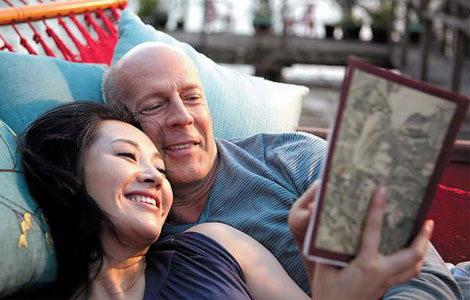
 Catering to Chinese viewers a hurdle for Hollywood
Catering to Chinese viewers a hurdle for Hollywood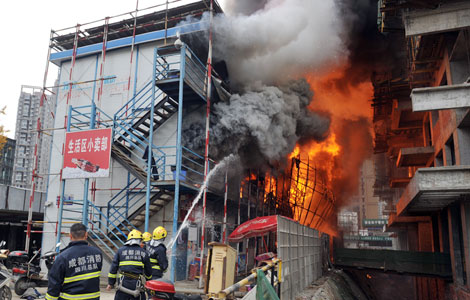
 Fire breaks out at construction site in SW China
Fire breaks out at construction site in SW China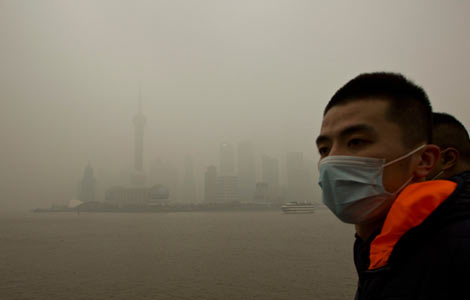
 More emission controls urged
More emission controls urged
 DPRK leader's uncle stripped of all posts
DPRK leader's uncle stripped of all posts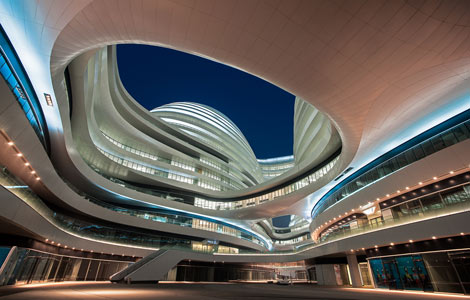
 Capturing 'beautiful Beijing'
Capturing 'beautiful Beijing'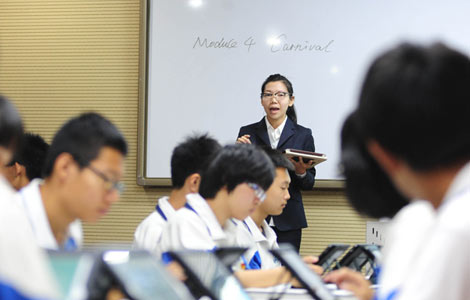
 Gaokao reform removes English
Gaokao reform removes English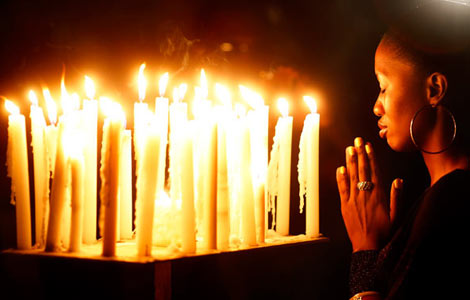
 South Africans pray for Mandela
South Africans pray for Mandela
Most Viewed
Editor's Picks

|

|

|

|

|

|
Today's Top News
Obama, Bush embark for Mandela memorial
Girl's death spark calls for child services oversight
US urged to overhaul surveillance laws
Japan 'betrays' arms embargo
Water diversion set to benefit Shandong
GDP growth could hit 7.8% next year
ROK air zone expansion 'a regret'
More emission controls urged
US Weekly

|

|
